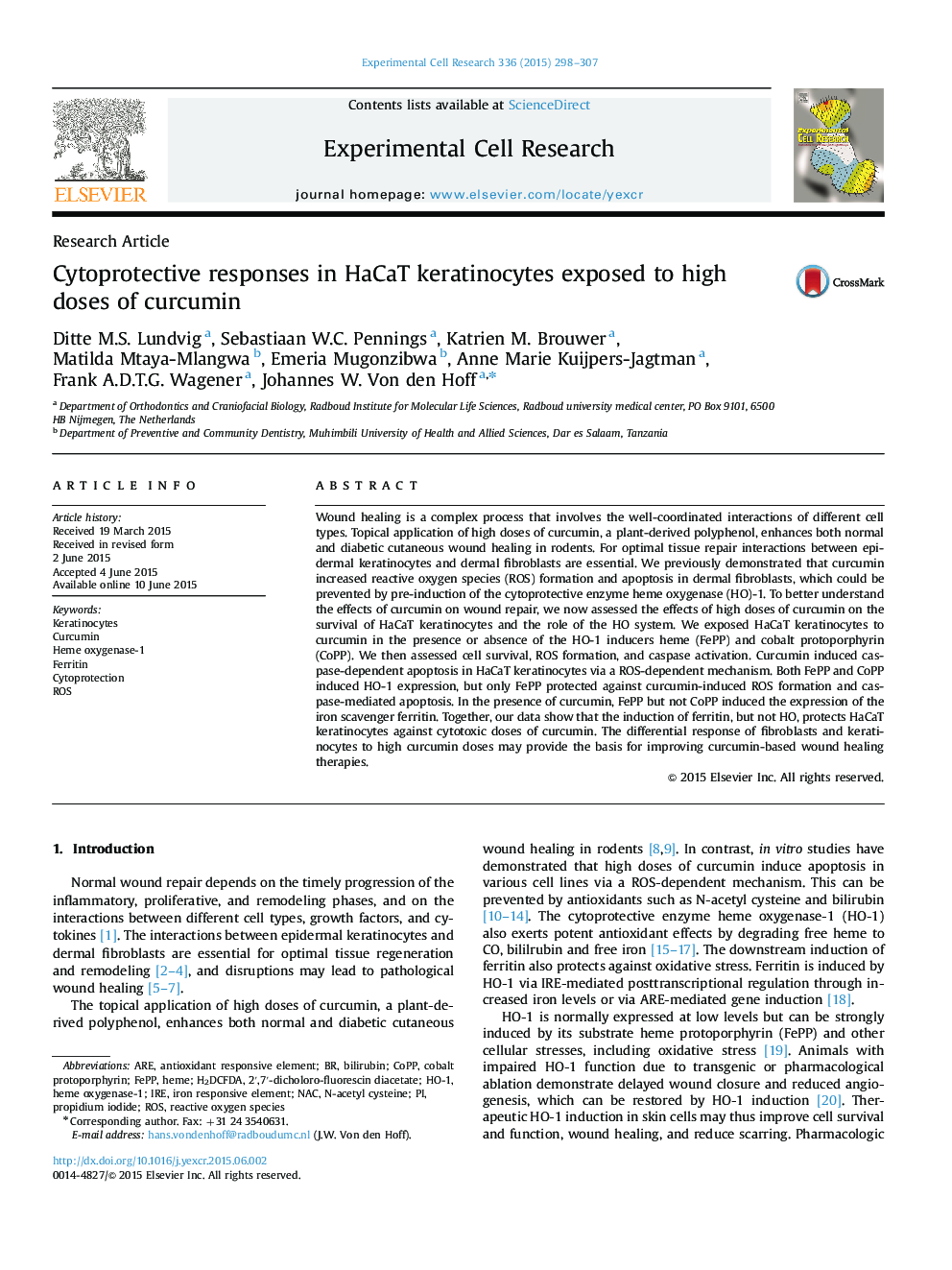| Article ID | Journal | Published Year | Pages | File Type |
|---|---|---|---|---|
| 2130175 | Experimental Cell Research | 2015 | 10 Pages |
•Curcumin induces ROS-mediated caspase-dependent apoptosis in HaCaT keratinocytes.•Induction of HO-1 by CoPP and FePP results in different cytoprotective effects.•FePP-mediated induction of ferritin expression protects against cytotoxic doses of curcumin.
Wound healing is a complex process that involves the well-coordinated interactions of different cell types. Topical application of high doses of curcumin, a plant-derived polyphenol, enhances both normal and diabetic cutaneous wound healing in rodents. For optimal tissue repair interactions between epidermal keratinocytes and dermal fibroblasts are essential. We previously demonstrated that curcumin increased reactive oxygen species (ROS) formation and apoptosis in dermal fibroblasts, which could be prevented by pre-induction of the cytoprotective enzyme heme oxygenase (HO)-1. To better understand the effects of curcumin on wound repair, we now assessed the effects of high doses of curcumin on the survival of HaCaT keratinocytes and the role of the HO system. We exposed HaCaT keratinocytes to curcumin in the presence or absence of the HO-1 inducers heme (FePP) and cobalt protoporphyrin (CoPP). We then assessed cell survival, ROS formation, and caspase activation. Curcumin induced caspase-dependent apoptosis in HaCaT keratinocytes via a ROS-dependent mechanism. Both FePP and CoPP induced HO-1 expression, but only FePP protected against curcumin-induced ROS formation and caspase-mediated apoptosis. In the presence of curcumin, FePP but not CoPP induced the expression of the iron scavenger ferritin. Together, our data show that the induction of ferritin, but not HO, protects HaCaT keratinocytes against cytotoxic doses of curcumin. The differential response of fibroblasts and keratinocytes to high curcumin doses may provide the basis for improving curcumin-based wound healing therapies.
